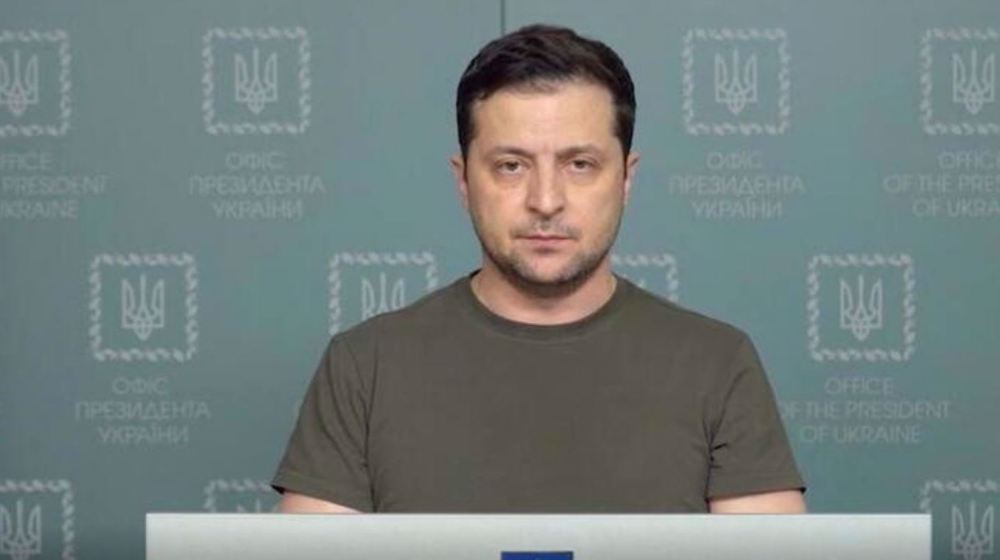Beyond NATOstan, millions root for Russia
By Daniel Patrick Welch
Maybe rooting for Russia sounds a little bit over the top. But it is true that, outside NATO's countries--enclaves--the so-called Western democracies and their sycophants, in Africa, Asia, South America, the Middle East--that things are seen quite a bit differently.
And people aren't openly rooting for Russia (which many of them actually are), but there are lots and lots of people who understand the position that NATO has put Russia in.
Does that mean that billions and billions of people have no humanity? Of course not. It's kind of ridiculous and insulting to say so. They all express concern for people in a warzone. Cuba and China have pledged to provide support for civilians when it becomes possible and necessary.
The bulk of the blame, though, they feel, is to be laid at the door of NATO--and specifically, its US trainers. Because they are the ones that started this whole thing, not only from the inception of NATO, out of the remnants of earlier attempts, from the MLF (Multi Lateral Force) and others, this was basically the fruition of the whole On-to-Moscow chorus. The quip is as poignant now as it was then: that the point of NATO was to 'Keep the Americans in, the Russians out, and the Germans down. And except for the out-and-out Nazis they recruited to help run the thing, this remains largely true today.
The other thing that really bothers people is that their concerns are completely dismissed. There is this concept of "whataboutism." Any context or history, any perspective other than this dominant narrative that people are being asked to swallow, and are being spoon-fed, is irrelevant, it's in the way, it's inconvenient. And these are people all across the Global South, who, for hundreds of years (literally), have been saying "what about." "What about us? Why don't we count? Why don't our interests matter? Why are our needs, and our fears, and our anger dismissed and disrespected?"
And you can see this now in the coverage of the conflict, the really racist crap that comes out of Western reporters' mouths. How they are just devastated, brought to tears because they are seeing this happen *in Europe! * to blond, blue-eyed people! This is not Afghanistan. This is not Syria. This is not Yemen (because we're bombing people right now in Yemen, right?). I guess they don't count at all. What about them? Nope. No problem.
So that touches a nerve. And when the Russians say--and others agree--that their security concerns were never taken into account and that that is the basis for this conflict, they feel it. It resonates with people across the rest of the world, outside the bubble.
So yeah, it's easy to dismiss anything that goes against this narrative because the information blockade is so complete and so powerful and so over-the-top that it is just nauseating. Seriously, anyone with any intellectual integrity cannot look at it and not see how over-the-top it is, how out of balance and how hypocritical it is in the context of history.
But people outside of Europe, and people in the United States, and in Europe, from these communities just look at this and shakes their head in disgust at the "blond, blue-eyed" trope, at the very idea. It really has to be said that many people don't even accept the basic premise of the Western narrative. That is, that Russia is the aggressor. They see that history (what about us?).
They see that history, that the war started at the very least in 2014. And that while this may be a new salvo, that Russia didn't *start* anything. And there are millions of people who agree with this perspective, which is being completely choked out of the news feed on Western TV and in Western minds.
That's why you see things like #IStandWithRussia trending in India today. That's why it's difficult to get a majority in the UN General Assembly. Even with all the little micronations that are basically on the US payroll. Because it's just too much.
People heard the excuses that were made when NATO completely destroyed Libya. They saw the glibness with which US and Western reporters responded when Moamar Gaddafi was sodomized with a bayonet. Or as Saddam Hussein, a brown man, was lynched on live television and the cackle of the West, embodied by Hillary Clinton's "We came, we saw, he died."
That's representation. That's a reflection of what happens to them, to their countries, to their people over and over again in this 500-year history. And if they don't make that connection, westerners make it for them. All the time. Lindsey Graham, just today, calling on somebody-- anybody--to "take out Putin." A call for assassination. He may be a wackjob, but he's a very famous wackjob. This is one of the leading lights of the other party in power in the United States. And people don't even blink an eye.
You have Scholz, the German Chancellor, who scoffs at the idea that Russians living in Donbass could be subjected to anything like genocide, as if that's completely absurd. Says a German Federal Chancellor to Russia? And non-Europeans feel this: what?
And by the way, the same thing is happening now. Right now. I have reports from Kharkov of these dead-ender Azov or other neo-Nazi battalions blowing up buildings destroying Kharkov, this beautiful city. Destroying it block by block to blame the Russians. And to get their revenge. They're completely encircled; there's little else they can do.
But Ukrainians, many of them, feel like shark bait. That they are positioned to goad the Russians into intervening. And the Russians took the bait, that's one strategic win for the West. They're also winning on the PR front, for now.
But they have to. Because the rest of humanity is waiting in the wings. This is a very serious thing, which is why people need to make a choice. Because once there is any inkling at all that it is even feasible to punch NATO in the face, to push back against the ruiner of countries--the Empire of Lies, to coin a phrase. Then the whole thing can just crumble in a fortnight. And that is something they simply cannot allow to happen.
Daniel Patrick Welch is a writer of political commentary and analysis. Also a singer and songwriter, he lives and writes in Salem, Massachusetts with his wife. Together they run The Greenhouse School. He has traveled widely, speaks five languages and studied Russian History and Literature at Harvard University. Welch has also appeared as a guest on several TV and radio channels to speak on topics of foreign affairs and political analysis--around his day job. He wrote this article for the Press TV website.
Zelensky’s name appears over 50 times in Epstein files: Opposition leader
Tehran rejects Trump’s riot death toll, demands proof
VIDEO | Police battle opposition protesters in Albanian capital
Israeli expansion across West Asia would be ‘fine’: US envoy
VIDEO | UK court frees remaining jailed members of Palestine Action
VIDEO | Former prince Andrew arrested by British police
VIDEO | Backlash mounts as Pakistan joins US-led Gaza ‘Board of Peace’
Saudi-Greece fiber optic project to pass through Syria instead of occupied territories: Report











 This makes it easy to access the Press TV website
This makes it easy to access the Press TV website